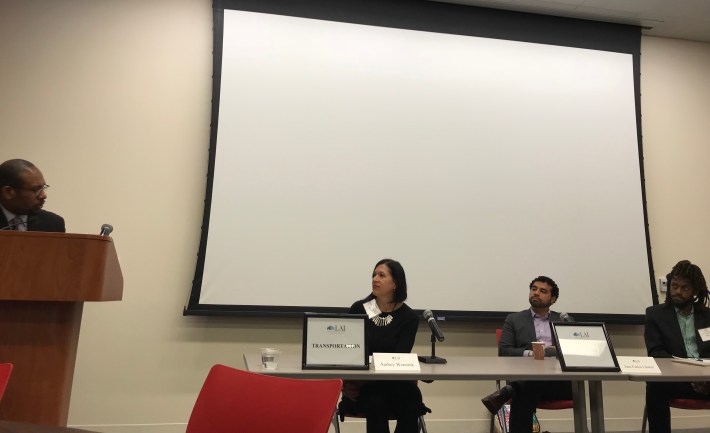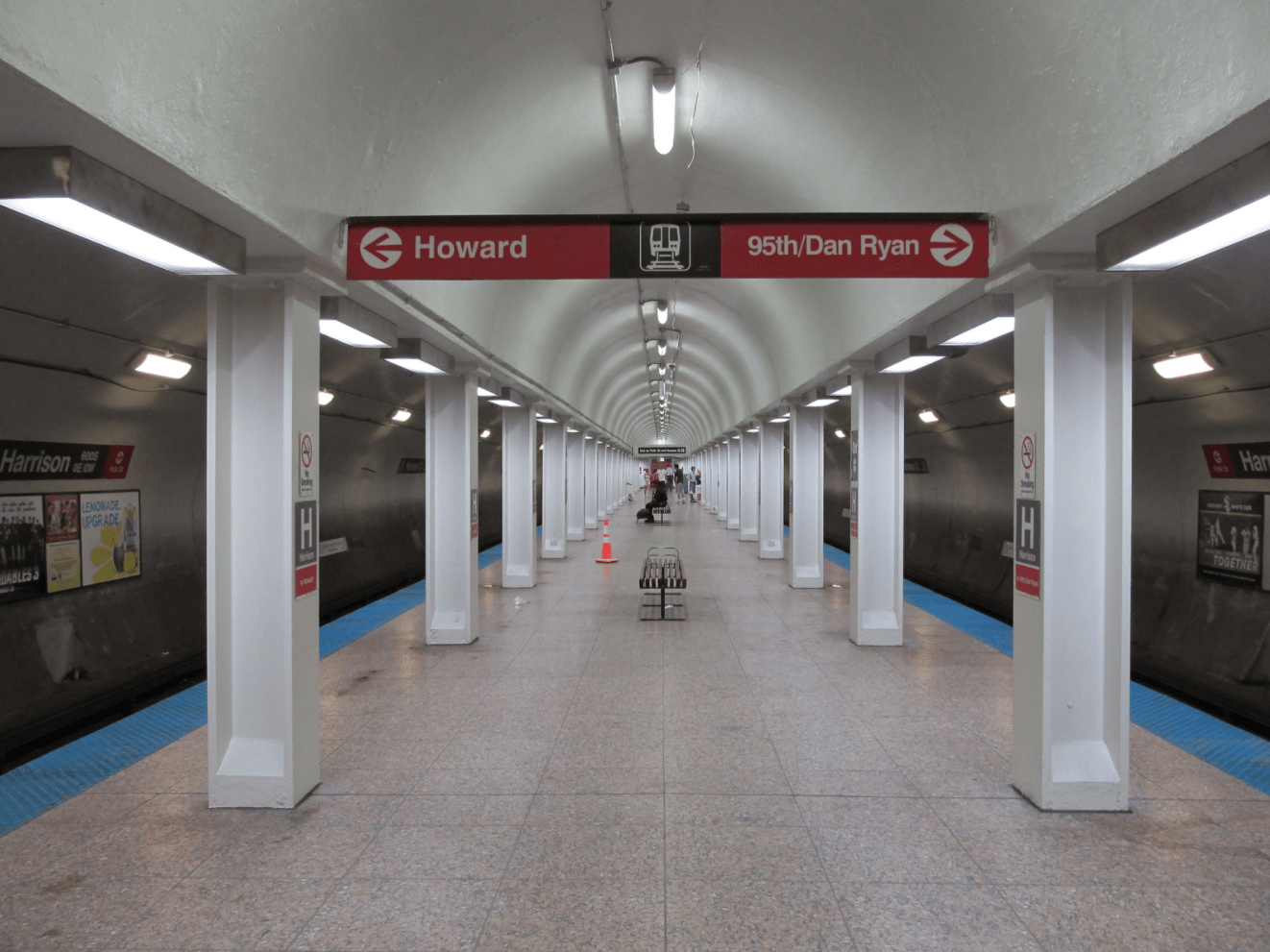You can't start a conversation about equity in Chicago without first talking about the legacy of segregation in our region.
Yesterday Lambda Alpha International Ely Chapter of Chicago, an organization that fosters the study of land use, hosted their Fall Chautauqua “Equity in our Region: Uprooting the Legacy of Segregation by Race and Income,” which is their series of in-depth forums on important issues.
The keynote speaker was Natalie Moore, WBEZ’s South Side reporter and author of "The South Side: A Portrait of Chicago and American Segregation."
“There has to be intentionality with breaking up segregation,” said Moore as she began her remarks.
Moore recalled the first time she understood segregation in Chicago when she was a young girl growing up in Chicago. In our city, segregation can be obvious when you observe where different types of people get on and off some train and bus lines. Moore was on what is now known as the Red Line with her friends going southbound when she noticed that white people were still riding on the train as they approached Chinatown. This baffled her. They all got off at 35th Street, but this experience stuck with her.
“It’s such a lived experience, we don’t question it,” Moore said.
Moore said she often encounters the argument that people want to just live around people of their own background. “Segregation and self-selection are two very different things,” she said.
Upon starting at WBEZ, Chicago's National Public Radio Affiliate, in 2007, Moore said, she thought that all roads led back to segregation. “Politicians often say they didn’t create it,” she said. “There’s often a tacit acceptance of it.”
Moore said that segregation determines who is allocated more resources in Chicago and that talking about that is key to achieving equity in our region.
“We aren’t going to move our region forward if we don’t,” she said.

After Moore’s keynote, there was a panel discussion focused on equity in regards to housing, transportation, and development. Moderating the panel was Alden Loury, senior editor of the race, class, and communities desk at WBEZ. The panelists were Juan Carlos Linares, executive director of the LUCHA, Audrey Wennink, director of transportation at the Metropolitan Planning Council, and Mike Simmons, founder and CEO of Blue Sky Strategies and Company.
Loury opened by speaking about MPC’s recent report Our Equitable Future: A Roadmap for the Chicago Region which built on its earlier report The Cost of Segregation (Loury previously served as the director of research and evaluation at the MPC).
“We wanted to come up with strategies that regardless of what community you lived in, you could have an equitable future,” Loury said.
The panel started with each panelist remarking on the ways their focus areas tie into segregation.
“One important point is where employers choose to locate, especially in our region that is very car-focused,” Wennink said. “There is a share of the population that doesn’t own vehicles and we have a very auto-oriented planning culture.”
Wennink stressed we need to evaluate where we are in terms of prioritizing transit and how money is allocated. “The way we plan our transportation is very biased, “ she said. Wennink said money is mostly spent in expanding car culture and suburbanization at the expense of other forms of mobility, such as transit, walking, and biking.
Linares brought up some of the challenges associated with housing affordability; particularly how federal housing subsidies mostly go to homeowners, rather than renters, who are more likely to be low-income. The issue of displacement due to rising housing costs is particularly obvious in Humboldt Park, where housing prices along the Bloomingdale Trail corridor have skyrocketed in recent years. LUCHA took action to address this by drafting an ordinance to charge demolition fees that would be used to fund affordable housing in the neighborhood.
Simmons, who was Mayor Rahm Emanuel’s policy director from 2011-2013, talked about development.
“The real challenge here is structural and systemic racism,” he said. “A lot of developers and grocery chains are afraid of Black people.”
Simmons said developers also don’t think Black communities have the money to spend in their businesses, but Simmons saw opportunities when he was policy director.
“I saw neighborhoods like Chatham and other middle-class black neighborhoods where you had residents spending their money elsewhere,” he said.
Simmons worked on getting Whole Foods to commit to come to Englewood, with a store opening in 2016. He said that it’s necessary to challenge perceptions about communities, particularly Black communities.
“We have to come up with creative solutions as planners,” Simmons said. “We have to put pressure on governments to come up with more creative solutions.”
The panel closed with some final words of advice from the panelists.
“Rarely we do we go into neighborhoods and communities and ask them how they relate to transportation, how they feel about it,” Wennink said. “It’s important to step back and figure out what a community needs and wants.”
Linares said it’s also time to look at how housing intersects with other issues.
“There is obviously a need for housing and a demand for affordable housing,” he said. “We should also be thinking about what we want our overarching housing policy to look like.”
Linares added that we should be asking what each industry can do to attach their work to housing. He said it’s important to not just build housing, but to ensure that people are able to live well in it.
Simmons said that when it comes to development, it’s necessary to be more upfront about the real issues and not to be afraid to invest in underserved communities. “If you have access to money, we have to take a risk with development,” he said.
![]()
Did you appreciate this post? Consider making a donation through our PublicGood site.




